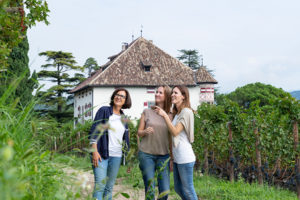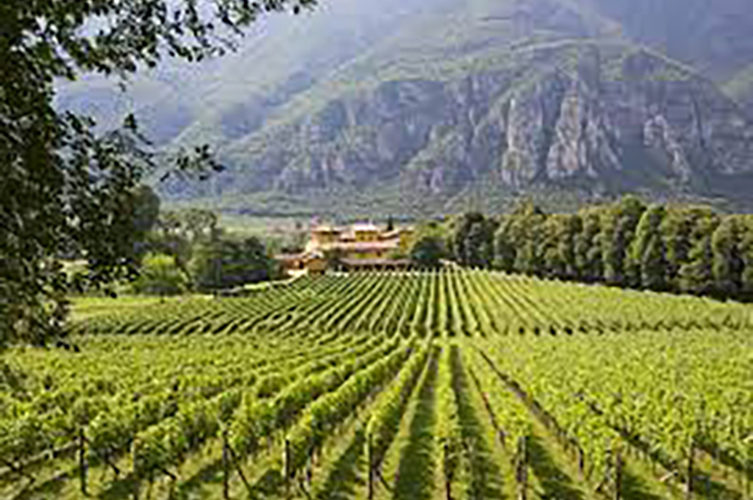 Alto Adige, part of South Tyrolia, sits at the northernmost part of Italy. It is so close to Germany that the majority of its citizens speak German as their first language. Located entirely in the Alps, Alto Adige produces exceptional wines.
Alto Adige, part of South Tyrolia, sits at the northernmost part of Italy. It is so close to Germany that the majority of its citizens speak German as their first language. Located entirely in the Alps, Alto Adige produces exceptional wines.
Andreas Kofler is the CEO of the Alto Adige Consorzio as well as president and CEO of Cantina Kurtatsch winery. Karoline Walch and her sister Julia took over general management of Elena Walch winery from Elena, their mother. I recently interviewed both of them via email and I wanted to share some of what they had to say to me.
 Andreas has recently spearheaded the implementation of new DOC regulations for the region, implemented a digital monitoring system, and developed a groundbreaking payment method for grapes from growers focused on quality and sustainability. He also teaches practical viticulture lessons, and oversees a few vineyards with his father.
Andreas has recently spearheaded the implementation of new DOC regulations for the region, implemented a digital monitoring system, and developed a groundbreaking payment method for grapes from growers focused on quality and sustainability. He also teaches practical viticulture lessons, and oversees a few vineyards with his father.
I asked him where his passion for wine came from. It “began very early at the age of 10. My father worked as vice chairman of the winery and we have always grown and produced wine at home. Therefore, my love for viticulture goes back to my childhood.” What makes the region so special? “Its diversity. There are very different microclimates and soils, in the case of my hometown, Kurtatsch, for example there are vineyards ranging from 700 to 3000 feet of altitude, basically all on one mountain slope. This diversity of terroirs gives us the opportunity to plant a lot of different varieties, each on the most suitable terroir and all on a very high level of quality. In addition to the different terroirs, the various structures of the wineries – from independent winegrowers to private farms and cooperatives – is also special. Alto Adige is quite homogenous if you look at the overall quality, so the competition between wineries is like a constant boost to improve and to do better.”
I asked him what challenges he faces as president of the Consorzio, and why he’s the right guy for the job. He replied his biggest challenge is reconciling the diverse companies and structures. His strength, he said, lies in being a good mediator and bringing the various parties together. He hopes to bring the region more attention both nationally and internationally.

Elena, Karoline and Julia Walch
Karoline Walch started working at her mother Elena’s winery with her sister Julia in 2013. They took over management in 2015. That same year, she focused on a state-of-the-art gravity-driven fermentation cellar. I asked her what it was like working with her sister. “Honestly, I think it’s the best thing! The two of us are quite different and also, we have different backgrounds when it comes to education as well as overseas experiences and therefore, I believe we complement each other very well. Working with your sister means that there is a person that you can trust 100% and that is loyal to you and to the company.”
I wanted to know more about her fermentation cellar. “Our estate’s philosophy is inherently connected to terroir – the idea that the wines are an individual expression of the vineyard’s soil, climate, and cultivation. With the new cellar, there are three important changes: the option between whole-berry or whole-bunch fermentation; the strict use of gravity to process the grapes as gently as possible; and four different points of quality control before the grapes reach the fermentation tanks. For the reds, the aim is to create wines that have more structure, more fruit, and soft, supple tannins with great aging potential.”
I asked her what challenges if any she and her sister face in a male-dominated world. “Compared to when my mother started back in the 80s, I am happy to report that nowadays there are many more women in the wine industry. Sometimes, however, I feel we lose them along the way. Meaning that there are many women in the educational part of the industry, however, still not enough women at the forefront of estates.”
I urge you to seek out the wines of Alto Adige. The ones I have tasted have been exceptional. Now a visit to the region is on my bucket list!

